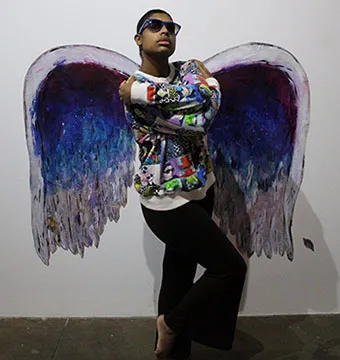One Young Adult's Experience with Cancer

After Olivia Gaines’ freshman year in college, she led a backpacking trip with her classmates when she started experiencing some disconcerting symptoms.
“It started slowly, at first,” she said. “I was beating myself up because I started to fall behind everybody, and everyone would keep walking…I was so tired.”
Quickly following the trip, Olivia experienced debilitating pain in her neck that hindered movement to the point that it was difficult to open a book. She discontinued her studies three weeks into her sophomore year, dedicating her time towards investigating her symptoms through consultations with general practitioners and chiropractors, an upper cervical specialist, ER doctors and university health center physicians, and an award-winning neurologist.
Despite these appointments, she came no closer to figuring out why she had these symptoms.
Following a bout of significant abnormal bleeding, Olivia’s mother urged her to go to urgent care. Within 24 hours Olivia was diagnosed with Acute Myeloid Leukemia and began chemotherapy.
“I lost a sense of imagination and being able to have a vision,” she remembered after a year and a half of relentless treatments where she was often in the hospital for periods of three and a half months. “And when you lose vision, you perish.”
Though unique in its own right, Olivia’s story represents the cancer experience of many young adults. She and the 70,000 other young adults diagnosed with cancer each year in the U.S. reminds us of a growing need to develop supportive care practices in medical and psychosocial communities that attend to the unique needs of young adults facing cancer.
She identified many issues that, though not entirely exclusive to the young adult population, are certainly preeminent or exacerbated in this life stage due to a cancer diagnosis.
Some include access issues, gaining job skills and learning about worker’s rights following cancer, issues with triaging and assessing for needs in the medical setting, information and support with dating and fertility, finding forums to connect with other young adult cancer patients, and supportive care following treatment. Research validates Olivia’s experience, citing these issues as critical areas of concern for young adults.
She remembers slowly coming out of the fog she experienced during her recovery by recognizing “little steps, small decisions, even if it was just one day being grateful for something.”
To help her in her recovery, Olivia had the support of an around the clock caregiver (her mom cared and advocated for her all the while holding down a full time job), insurance to pursue effective treatments, and an inherent resourcefulness that enabled her to find supportive venues, like the Cancer Support Community.
After participating in our Pasadena affiliate’s services, her potential became tangible opportunities. She landed a part time job with the gym that offers a strength training class at our Pasadena affiliate. She also submitted a letter to young cancer patients and won $5,000 in a writing competition. She further reignited her passion for writing by attending a weekly journaling and poetry class.
“Places like Cancer Support Community Pasadena are created to restore the sacred,” Olivia said. “You help give everyone peace when there’s a place to take care of you on a soul level. That’s what’s going to help you come alive again.”
Though Olivia’s story has an encouraging ending, she humbly recognizes that other young adults with cancer may not have access to some of the resources that she did. More investment in addressing issues faced by young adults impacted by cancer is essential in providing comprehensive cancer care.
To those who are just at the beginning stages of a cancer diagnosis, Olivia eloquently says, “You can be more than be sick. You’re here. You’re worthy. Keep the vision of who you want to be alive.”